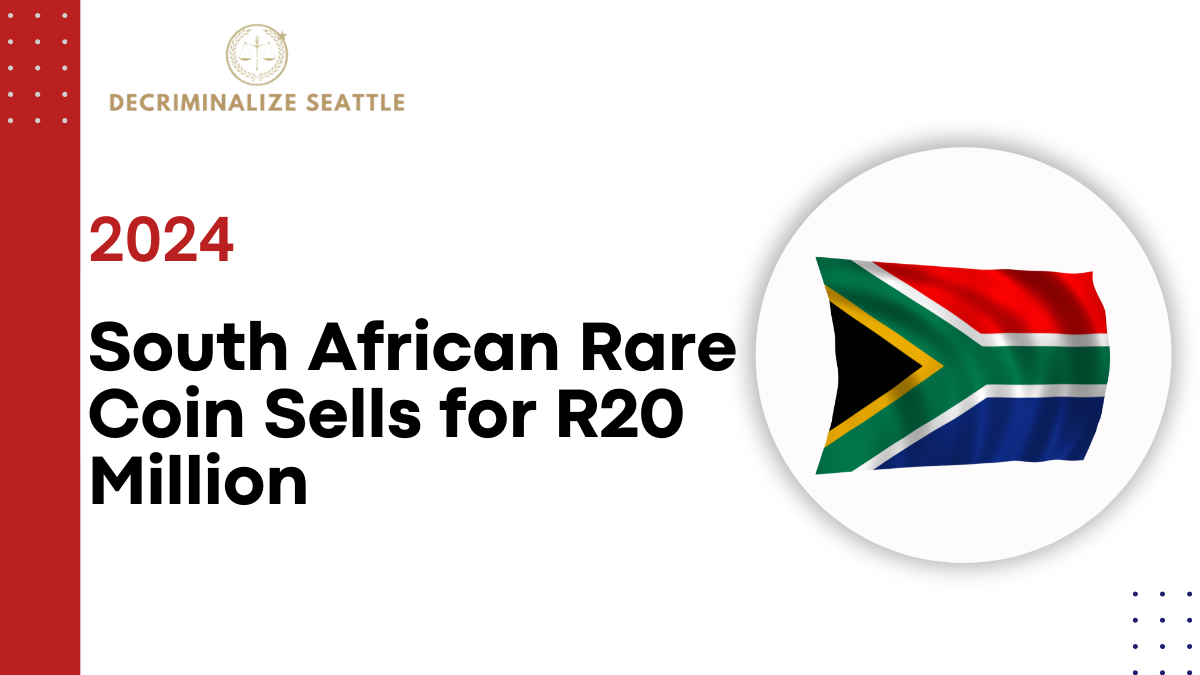Old coins and banknotes can be much more than just sentimental keepsakes; many of them hold significant monetary value. Recently, the numismatic market has witnessed some extraordinary sales, such as a rare South African coin fetching an incredible R20 million. These high-profile transactions fuel growing interest among collectors and enthusiasts keen to discover whether their old currency might also be worth a substantial sum.
South African Rare Coin Sells for R20 Million
Imagine discovering an old coin, only to learn it could be worth millions. This was the reality when a rare 1898 Single 9 Pond, one of South Africa’s most sought-after coins, sold for an astounding R20 million. The coin’s significance lies in its rarity and the historical context of its minting. Issued during the Anglo-Boer War, the Single 9 Pond represents a pivotal era in South Africa’s past, making it an exceptional piece for serious collectors.
Understanding What Makes Coins and Notes Valuable
A detailed evaluation is necessary to determine a coin or banknote’s value. It goes beyond a simple inspection and involves examining key attributes like condition, rarity, metal content, and historical significance. The field of numismatics, which encompasses the study and collection of currency, provides essential insights into identifying and appraising these old coins and banknotes.
Key Factors Influencing Coin and Note Values
Several factors contribute to determining the value of old coins and banknotes. These include:
- Condition and Preservation
Well-preserved items are generally more valuable. This includes coins with little to no wear and banknotes that remain uncirculated. Even minor damage, like folds or discoloration, can significantly impact a banknote’s value. - Metal Content
Coins composed of precious metals such as gold or silver can be highly desirable. Their intrinsic value often aligns with the prevailing market rates of these metals, providing additional stability as investments. - Rarity and Historical Significance
Coins with limited production runs, unique minting errors, or ties to historical events can command much higher prices. Rarity is often a major determinant of value, with collectors willing to pay significant sums for one-of-a-kind pieces.
Examples of Rare and Valuable Coins in South Africa
Some notable examples of South African coins that have fetched high prices include:
- 1898 Single 9 Pond: Sold for an astounding R20 million, this one-of-a-kind coin is the pinnacle of rare South African currency.
- 1965 Afrikaans R1 Coin: Valued for its historical and linguistic significance, as it was the first R1 coin to feature Afrikaans.
- 1928 6 Pence Coin: A highly sought-after coin that has fetched over R3 million in recent auctions.
- Full Brockage Pond (1898): Known as an error coin, these are immensely valuable due to their minting mistake.
- 1965 50 Cent Coin (English): Rare and highly desirable among collectors.
How to Evaluate Your Coins or Banknotes
If you suspect that your old currency might be valuable, here are some key steps to help you determine its worth:
- Examine the Condition
Start by carefully evaluating the physical state of your coins and banknotes. Look for signs of wear, tears, or damage. Pristine, uncirculated notes and minimally worn coins are typically the most valuable. - Identify the Metal Content
Check the metal content of coins made of gold, silver, or other precious metals. Current market prices for these metals often provide an estimate of their intrinsic value. - Research the Rarity
Consult numismatic guides, auction records, and experts to determine the item’s rarity. Look for details such as the year of minting, production errors, and unique features. - Consult a Numismatic Expert
To get an accurate valuation, consult a reputable numismatic expert or auction house. Their expertise can help confirm your item’s authenticity, historical significance, and precise value.
Notable High-Value South African Coins
The South African numismatic market has a rich history of rare and valuable coins. Here are some prominent examples:
| Coin Name | Year | Approximate Value |
|---|---|---|
| Single 9 Pond | 1898 | R20 million |
| 6 Pence | 1928 | Over R3 million |
| Full Brockage Pond | 1898 | Error coin, highly valuable |
| Afrikaans R1 Coin | 1965 | Highly collectible |
| 50 Cent (English) | 1965 | Rare and sought-after |
Conclusion
Exploring the world of old coins and banknotes can be a captivating journey through history, art, and investment potential. If you possess old South African currency, it’s worthwhile to assess their value. Important factors like condition, rarity, and metal content play a significant role in determining their worth. From rare coins to limited-issue banknotes, your old currency might be worth much more than its face value.
Numismatic enthusiasts find great pleasure in discovering and collecting these historical artifacts. By following the steps outlined here, you can start to uncover the potential hidden value within your collection.
Click here to know more.

Arvind is an avid automobile enthusiast who is passionate about all things on wheels. From the latest car models to classic vintage rides, I love exploring the automotive world’s intricate details and engineering marvels. With years of experience in test-driving, reviewing, and analyzing cars, I provide readers with comprehensive insights and honest opinions.
